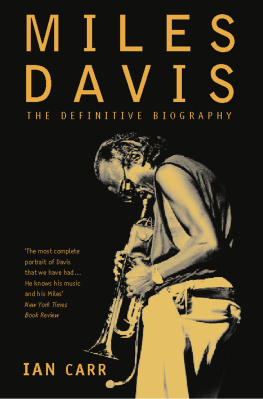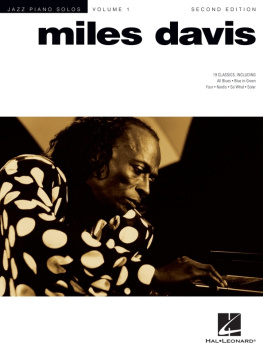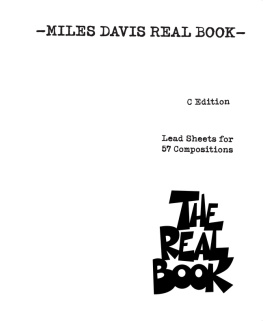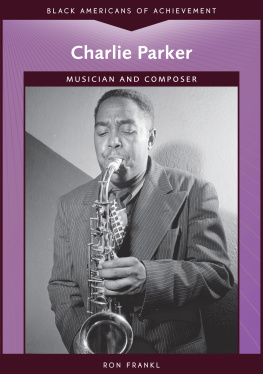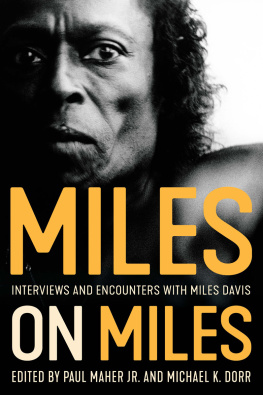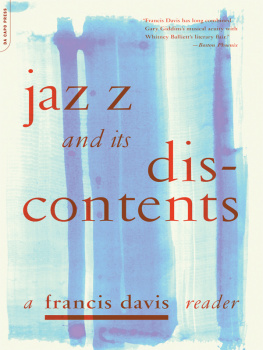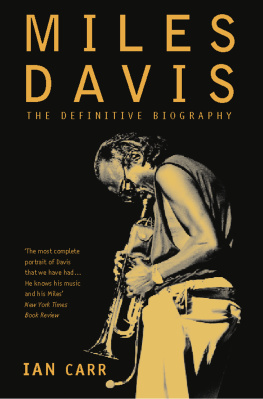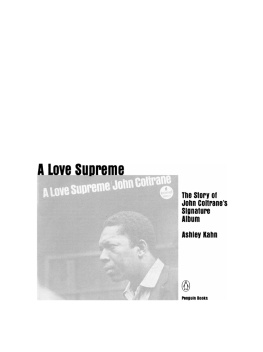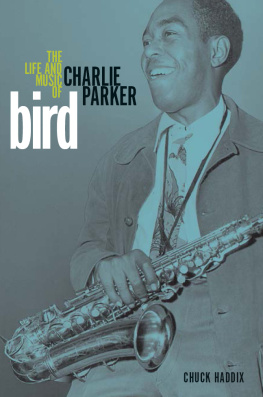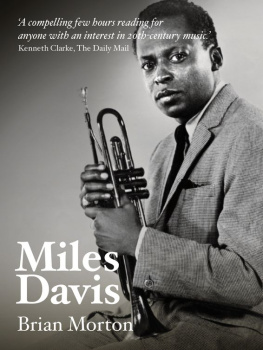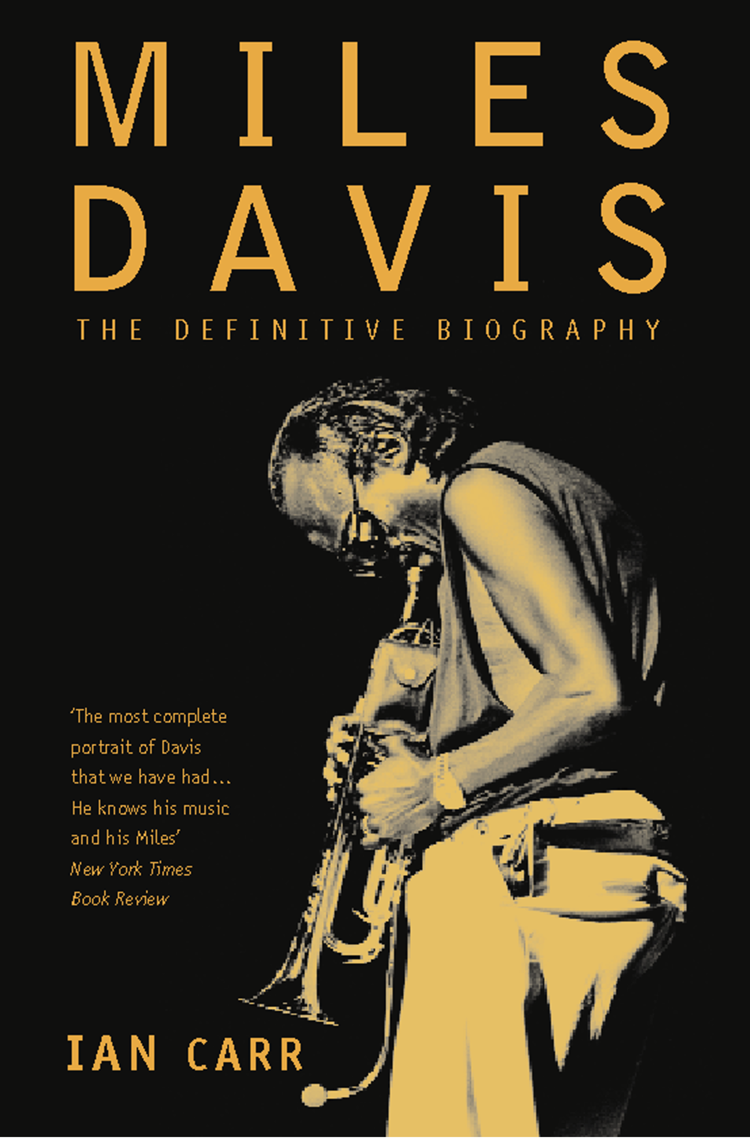I just got on to the trumpet and studied and played.
Miles Davis
Miles Davis was born in Alton, Illinois, on 26 May 1926, and a year later his family moved south to East St Louis, a small town on the east side of the Mississippi River. There was an older sister, Dorothy, born in 1924, and in 1929 his brother Vernon was born. The family was middle-class and prosperous, having established itself in just two generations since Lincoln and Congress abolished slavery in America. The men of the family were proud, intelligent and self-willed, and the name Miles was passed on to the firstborn son of successive generations.
In the days of slavery the Davis family had been musicians and had performed classical string music for the plantation owners. But after Emancipation this musical tradition was broken. For several decades there were only two courses open to Negro musicians: either to be an entertainer for white folks, or to play in clip-joints, brothels or bars. Neither alternative was acceptable to the aristocratic Davis men. Miless father (Miles II) wanted to be a musician himself but was emphatically dissuaded:
My father, Miles I, was born six years after the Emancipation (i.e., in 1869) and forbade me to play music because the only place a Negro could play then was in barrel-houses. My father was the most efficient double entry column book-keeper in Arkansas before the coming of the adding machine and white
It was no illegal fixing, but at that time no white man wanted it known that his accounts were being done by a black book-keeper. Miles I was eventually able to buy a thousand acres of land in Arkansas and send his son, Miles II (born 1902), to Northwestern College to study dentistry. Miles II worked hard and when the family moved to East St Louis he had a thriving practice and became a substantial landowner, buying a 200-acre ranch on which he raised pedigree hogs and kept horses. This enabled his son, Miles III, to grow up in the open country and to enjoy the pursuits of riding, hunting and fishing. According to his father, he liked long country walks and was an excellent horseman if he was ever thrown hed remount immediately and master his mount.
The young Miles had the ingredients for a secure and happy boyhood: caring parents, a father with professional status, wealth and property, and a mother, Cleota Henry Davis (born 1900, also in Arkansas) who was dignified and beautiful. However, this meant little if you were black and lived in a city as racist as East St Louis. The Davis family moved into an all-white neighbourhood a bold and provocative gesture typical of them. But although East St Louis was in the officially Midwest state of Illinois, it was in southern Illinois and racism was still prevalent (many blacks had been murdered there in the infamous and bloody riots of 1917). One of Miless earliest memories is of being chased down a street by a white man shouting, Nigger! Nigger! Miles, a sensitive boy, never forgot it. However, it was instilled into him that the Davises were special people, and he also found particular inspiration in his paternal uncle Ferdinand, who had attended Harvard University and was well-travelled, stylish, intellectual, a ladies man, editor of a magazine called Color, and an authority on black history.
In physique, Miles Davis took after his father, having the same slight, though wiry, frame. He inherited his mothers good looks the large, luminous eyes, the straight, finely chiselled nose, and the delicate jawline and he also felt that his artistic talent, sense of style and love of clothes came from her. His early relationship with her was deeply affected by the racial and social situation. As the wife of a dental surgeon, Miless mother was aware that her family had an important place in local society, and she strove to uphold that position. After Emancipation, it was the professional men and ministers of the church who were the heads of the new black society, and they were at pains to get rid of any customs, habits or mannerisms that were too negroid or which harked back to slavery. It often happened that leading black citizens became the most fanatical imitators of white society.
The music in the Davis household was limited to the genteel Western variety. Miless older sister, Dorothy, played the piano, and he used to peep through the door and watch when she had her piano lessons. His mother played the violin and wanted Miles to take it up. But another side of her musical ability, which she did not reveal to Miles for many years, was always suppressed: she could play the piano and knew the blues. In 1958 he said, I didnt know until after Id gone back there for a visit a few years ago, that my mother ever knew one note of the piano. But she sat down one day and played some funky blues. Turned out that my grandmother used to teach organ. So complete was the censorship that even the knowledge of his grandmothers musical proclivities had been kept secret. But his mother did at least buy him two records by Art Tatum and Duke Ellington, and also unwittingly assisted his musical development by frequently putting Miles, Vernon and Dorothy on the train to stay with their grandparents in Arkansas, which had been one of the slave states and was saturated with black music: blues, gospel and worksong, sung by men or women, accompanied by funky guitars. Miles experienced this from the age of six or seven, walking at night on country roads with his uncles and cousins, and also at Saturday-night church services, and the potent music left an indelible impression on him.
In East St Louis, as befitted their social position, the Davis family Miless mother was also active in community life. Later on, she was to work with such organizations as the Urban League, the aims of which were: To eliminate racial segregation and discrimination in the US, and to help black citizens and other economically and socially disadvantaged groups to share equally in every aspect of American life.
Although intensely conscious of his social position, Miless father did not attempt to blot out the past with the same fanaticism as his wife, nor did he try to ape all the customs of white society; he was proud of his own father and reminisced about his forebears. He also instilled into Miles junior the necessity for self-sufficiency, insisting there was no excuse for being poor. As a result, Miles was, from an early age, money-conscious and frugal. By the time he was ten he was doing a paper round. I got a paper route and it got bigger than I could handle because my customers liked me so much. I just delivered papers the best I could, and minded my business I saved most of what I made except for buying records.
From the age of seven or eight, Miles had also been listening regularly to a radio show called Harlem Rhythms which featured great black musicians including Louis Armstrong, Count Basie, Bessie Smith and Duke Ellington, but also included a few leading white musicians like Bobby Hackett and Harry James. Then when he was nine or ten, his fathers best friend, a medical doctor called Eubank, gave Miles his first trumpet and he had some private music lessons. But by the time hed reached his teens, Miles had become aware that his mother and father were not getting along well. (They would eventually divorce.) One confrontation occurred on Miless thirteenth birthday. His mother wanted to

